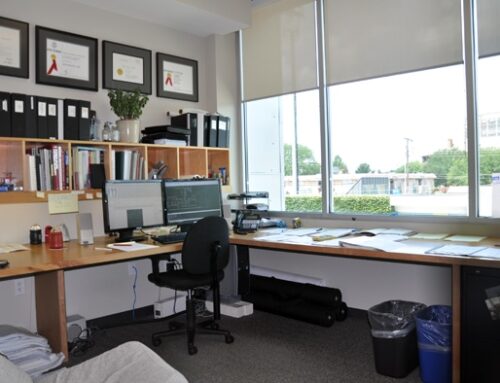At present day, social media platforms are essential in the lives of human beings as a whole. And we’re not just talking about taking beautiful pictures or to promote businesses and build connections with like-minded people, but they also have a fundamental use to inform and enrich society in terms of knowledge.
Health and social media have an important connection between them, which, if it is applied professionally and responsibly, can be very fruitful for the users and for the patients themselves.
In fact, a large number of studies have confirmed that practically the 80% of the population are in social media and more than 43% of the users go to the internet just to clarify doubts regarding health, either to learn about healthy habits with which to improve their lifestyle, or to learn a little more about a specific symptom before going to a doctor, thus reducing the fear that many have when going for consultation.
But sadly, a great enemy of health in social media is misinformation or misconceptions that can go viral out of ignorance. It is for them that the pros and cons of the relationship between social media and health care will be further developed below.
Social media is not a substitute for the care that a doctor can provide.
As mentioned above, a large percentage of users prefer to go to the internet in the first instance to find answers instead of going to specialized medical care, but when it comes to people’s health and well-being this can be a danger for you and society as a whole.
This can lead to self-diagnosis, in which people by identifying with some symptoms that they find on the internet can think and convince themselves that they suffer from a disease without fully understanding why these can occur, not knowing if this may be simply a consequence of an activity of everyday life or actually a serious illness.
The diagnosis can not only be defined with the symptoms that a patient refers, but it is an exhaustive process in which a specialist in a certain health field must know more through a physical examination and complementary tests to be able to identify a syndrome or pathology.
In addition to this, we must be clear that not all the information that we can find on social media is accurate. That is why the use of social media should not be directed to a medical diagnosis, but to educate users on how to, in a colloquial and understandable language for the general public, take care of themselves and prevent the deterioration of their health in a dynamic way.
So, in health, what is social media useful for?
- Reduce the fear of attending medical attention:
For a lot of people, going to an appointment with the doctor is a very scary idea, mainly out of fear of being diagnosed with some serious pathology. But today, a lot of doctors try to show the realities of their health work through social media platforms, thus trying to be transparent and friendly to their followers in order to reduce this fear.
Going to a consultation is not synonymous with illness, but rather with taking action to prevent our health from declining, being possible to prevent situations that put us into risk.
The objective of health professionals in social media is that the community feel more comfortable with issues like the importance of health care and transform the idea that doctors are always scary monsters, but that actually, at the end, they are there to help anyone who needs them.
- Create supportive communities:
These are not based solely on educating and providing important information aimed at the prevention of diseases, but through these a supportive social environment can also be created with people who need to cope with a difficult situation.
It is advantageous that the use of social media not only focuses on the individual benefit of acquiring knowledge, but also collectively benefits by providing emotional support to anyone in need.
In social media, communities contribute positively to the social and emotional well-being of individuals, allowing this interaction to provide company and support, by carrying out joint activities in which participants feel good with each other by working together voluntarily.
- Make yourself known as a professional in social media:
Like companies that offer services on their social media, clinics or doctors use them as a tool to connect and make their services known to the public.
Carrying out good participation and actions in social media on the part of health personnel provides a positive contribution to their name and to the health center where they carry out their work on a day-to-day basis.
Although these should not be popularized as a consultation method, it is useful to establish a bond of trust with the followers, as well as being useful to inform about some simpler points of general interest and advice from the point of view of a professional, and even some new discoveries in the area of health.
That way it can also be a means of contact through which the people in charge of working with patients can be made known, facilitate the place and site where services can be provided.
- Work hand in hand with a professional:
In the case of educating the community, it is not enough to know how to reach the public, so you gotta study deeply just to know more about marketing and communication. To deal with issues in the area of health in social media, the most ethically correct thing would be to work hand in hand with a professional in the area of health to advise us on what is correct and what is not.
Health is a topic that not everyone can cover on social media. You should always work with someone who is able to clarify doubts and who is capable of guiding people in this area, who can provide the necessary credibility and to be able to be guided in the correct path of reporting.
What social networks are optimal for dealing with health issues?
- Facebook.
Facebook is one of the most used social media platforms over the years. It is one of the main ones where you can publish content from the health sector.
Being a great interaction and marketing platform, it is useful to create groups where useful content can be shared.
- YouTube.
Through the multiple videos you can find, although it is less interactive, educational content can be created that can be directed both to the general public with a simpler language to publicize important health issues for the population, as well as for other professionals or people in preparation in this area with a more technical language.
YouTube is a social media platform that can teach people in all educational levels, and the most striking thing is the interactive way in which interventions can be shown, which can help both to understand medical processes and to promote and publicize the results of the same to gain the attention and confidence of the spectators.
- Instagram.
It is one of the social media platforms that stands out for its content in images and videos that contribute to show informative content for all audiences, including summary tables for professionals.
Due to its high visual content, Instagram is very useful to highlight especially before and after results of processes and treatments applied to patients, also serving as a promotional tool for health personnel and the centers in which they work.
- Twitter.
The speed with which news and information are released on Twitter is one of the most notable points of this platform.
The limit of words to use on Twitter is quite useful, and even many preventive health centers say they communicate fairly quickly through this media.
- LinkedIn and Xing.
Both are social media that are popularly used in the field of health for job search in which professionals expose their resume, experience and what they want to apply to. But these social media not only focus on job search, but through it, debates and discussions on specific topics in the health field can be held, through which the different professionals participating can be made known and noticed.
The presence of health personnel in social media is necessary.
With this, we can say that social media today is very useful in many aspects and work areas as a digital tool, in which the health sector is not the exception.
Social media platforms have been a great advance that strengthens and allows the development of a doctor-patient relationship even before the face-to-face meeting.
The purpose of the presence of the health sector on the internet is mainly to be that specialized contribution that provides important information content, so that patients become aware of how essential it is to take care of their health and always go to the doctor before any concern and eventuality that is presented to them, thus facilitating the exchange of knowledge between professionals and patients.
It is also a way of publicizing the specialists and centers in which they provide services, facilitating the necessary contact for people to come to their call.
But not everything focuses on the relationship between a doctor and his patients, but it is also very useful to share and expand scientific knowledge between people from the same professional field, where research processes, debates, and recommendations can be applied and explained among colleagues, teachers and students in the health area.
At the end, social media platforms are very supportive of inspiring a lot of people to share their battles in different situations, allowing people to feel accompanied in every situation.
Because in no battle we are alone.
Originally posted 2021-09-21 18:01:18.
Originally posted 2021-09-21 18:01:18.








